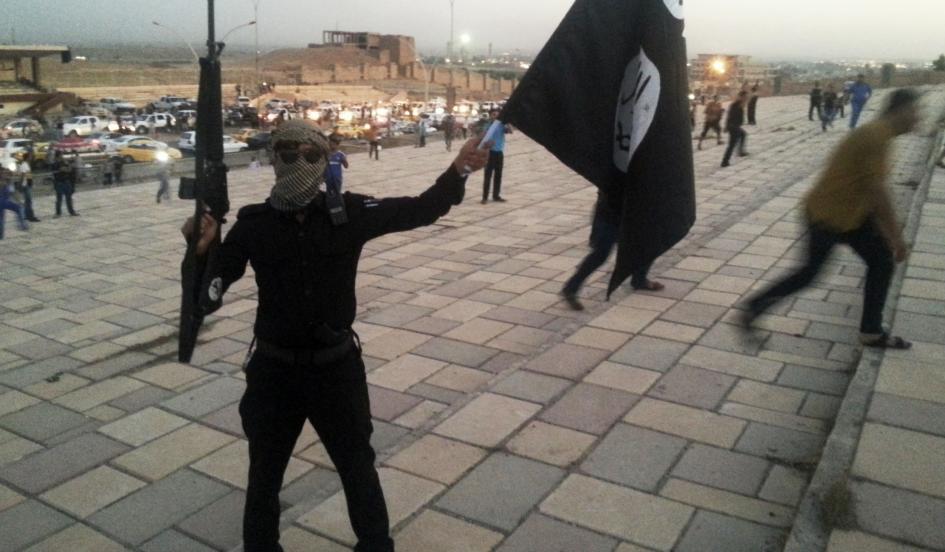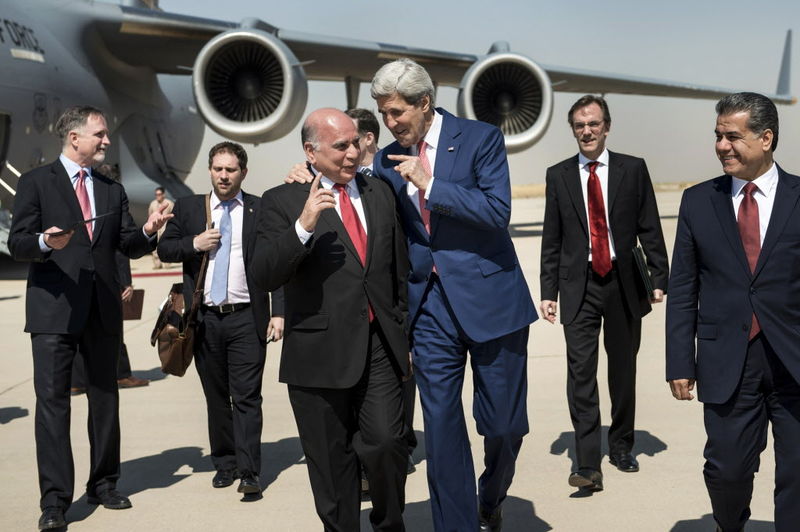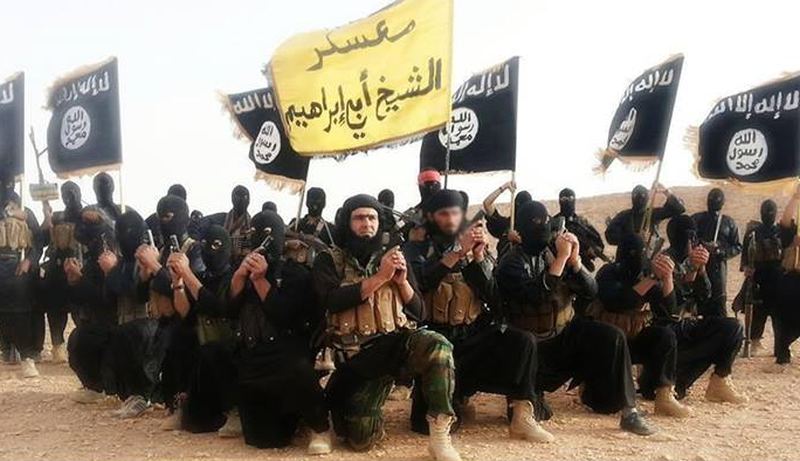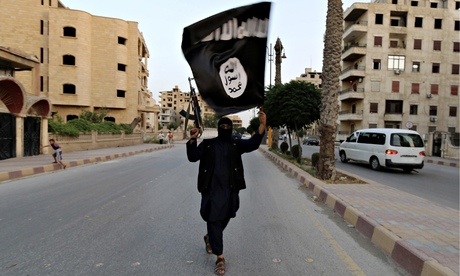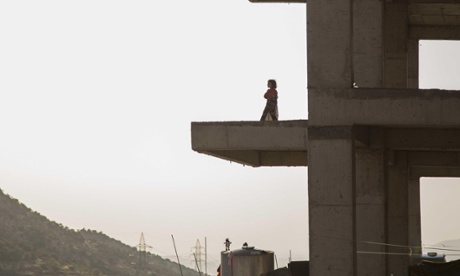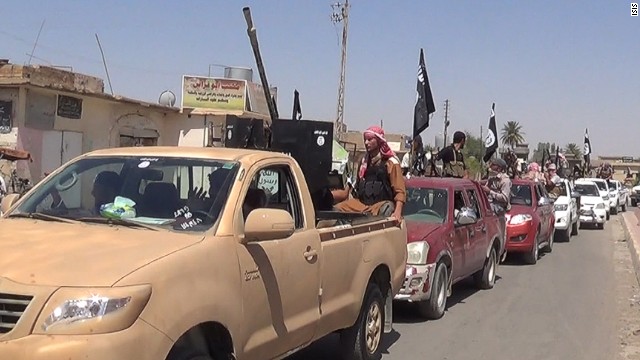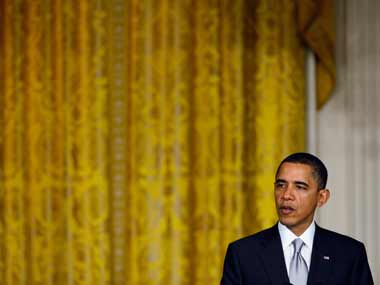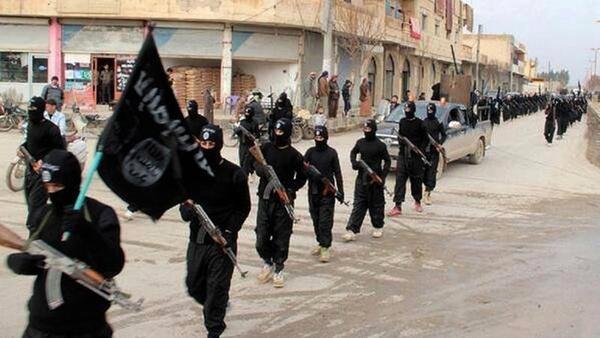The Rise Of ISIS Part 1: What's Next? How Can It Be Defeated?
A serious discussion about the dangers of radical Islam and how ISIS's perversion of one of the world's great religions can be reversed is much needed.
On 29 June, a fortnight after taking over Mosul, Iraq's second city, the vicious Sunni Muslim extremist group known as the Islamic State (IS or ISIS) operating in Syria and Iraq, declared a caliphate, claiming to speak for the world's 1.6 billion Muslims
It then battled its way towards Baghdad where the Shia-dominated government sits. At the start of August, IS turned north towards Iraq’s Kurdish autonomous region and towns home to minorities on the way, attacking Christians, Yazidis and fellow Sunnis, and threatening to reach Erbil, the Kurdish capital.
Following which, on 8 August, the American President Barack Obama authorised airstrikes against the group. Meanwhile, in neighbouring Syria, ISIS also started expanding westwards.
In retaliation, ISIS released a gruesome video showing the beheading of U.S. journalist James Foley and threatening the life of another American if President Obama doesn't end military operations in Iraq
The Islamic State, known previously as the Islamic State of Iraq and Greater Syria, ISIS or ISIL, grew out of remnants of the Islamic State in Iraq, a brutal group that led attacks against the American-led coalition forces after the 2003 invasion
By 2011, when the Americans withdrew, the group had been weakened by the Sahwa—Sunni groups paid to fight them—and targeted assassinations of their leaders. But the remaining fighters continued to extort money in Mosul and carry out attacks in Iraq. The vacuum created by Syria’s civil war from 2011 was a big boon, allowing surviving members to regroup and recruit next door.
With headquarters in Raqqa, in eastern Syria, and extortion rackets in Mosul, it grew in power. Thanks to disgruntled Sunnis in Iraq willing to ally with IS (after being excluded by the government in Baghdad) and a brittle Iraqi security force that fled in the face of the assault, IS, by now composed of thousands of men, including many foreign fighters, managed to grab swathes of territory in Iraq.
In other words, western intervention played an important role in the rise of ISIS. By backing the Syrian rebels against Assad – another secular despot – the west gave the group an impetus it would otherwise not have had.
With jihadist forces including Isis being funded from Saudi and Qatari sources, there was never much chance of a “moderate opposition” taking over in the event of Assad’s defeat. A radical Islamist regime, another failed state or some mix of the two were – and remain – the likeliest upshot. As things stand, there is not much the west can do to disable Isis in any lasting way. No one can seriously believe that this now self-financing, media-savvy and militarily skilful organisation will be snuffed out by a bombing campaign. At the same time the prospect of being sucked into an unending ground war is deeply disturbing.
Now with sickening snuff videos and viral postings of mass executions, ISIS has developed the projection of terror way beyond any predecessor. It has also managed to make itself seem more militarily formidable than it actually is.
Even though its capacity as a training camp and assignment center for jihadists who can be sent to blow people up in Europe, the U.S. and Asia poses an extreme new danger, this should not be confused with its threat as a land-based army. For sure, as ISIS created its sprawling caliphate with lightning thrusts into Iraq from its base in northeast Syria, it appeared to sweep all before it. It was well funded, well armed and well led. It rapidly incorporated military equipment and skills from disaffected units of the Iraqi army.
thedailybeast.comBut as a conventional land army ISIS has serious weaknesses. It doesn't have an air force and it doesn't have (yet) sophisticated air defenses of the kind used to knock down MH17 in the Ukraine.
All ISIS logistics and dispositions in the field are observable by drone and satellite. This is not an elusive, dispersed terrorist network hiding in caves or with a nocturnal leadership moving from safe house to safe house where strikes are very time sensitive, requiring on-the-ground intelligence. To be sure, ISIS can bury their command and control centers in urban areas and use civilians as shields, but they are also a large, massed force designed to take and hold territory and once they commit to an attack they are out in the open with their lines of communication and supply exposed.
thedailybeast.comSo what is ISIS essentially – violent millenarian cult, totalitarian state, terrorist network or criminal cartel?
Yazidi refugee families from Sinjar have fled Isis and are living in a building under construction in Dohuk
Image via guim.co.ukThe answer is that it is none of these and all of them. Far from being a reversion to anything in the past, Isis is something new – a modern version of barbarism that has emerged in states that have been shattered by western intervention. But its influence is unlikely to be confined to Syria and Iraq. Isis is already attracting support from the Taliban in Pakistan, and there are reports that a caliphate has been declared by Boko Haram in a town in northeast Nigeria. In time – if only to confirm its superiority over al-Qaida – Isis will surely turn its attentions more directly to the west.
It would be easy to take the view that having blundered so disastrously, and so often, the west should withdraw from any further involvement and let events take their course. But having helped bring this monster into the world, the west cannot now turn its back. In ethical terms such a stance would be little short of obscene. It is the west, after all, that is chiefly responsible for creating the anarchy in which Isis is able to pursue its hideous experiment in state-building. To leave the Yazidis and other persecuted groups defenceless in the face of an imminent threat of genocidal massacre would be a crime as bad as any perpetrated in the course of earlier interventions.
The challenges posed by ISIS are daunting. Military action can achieve little if there is no accompanying political settlement.
Jihadist groups normally tend to prove bad at governance, lose civilian support and falter in their most ambitious aims, such as state building. But the rise of extreme Islamist ideology and the multiple vacuums in the Arab world allow such groups to survive at least well enough to makes a nuisance of themselves, including Yemen’s al-Qaeda in the Arabian Peninsula and jihadists in Mali. Western officials describe IS as stronger and more sophisticated than all of these, amounting in some estimations to the biggest security threat facing the region since 9/11.
No one has explained how political solutions can be reached or enforced where the state barely exists and government is in tatters. Can the west learn from its mistakes and set itself more limited and defensible goals? Or are western governments bent on repeating their past follies? We should find out fairly soon, if Isis continues its terrifying advance.
Syria's war has no end in sight; Iraq remains in a mess. So even in the best-case scenario ISIS is likely to be active for generations to come.
And the problem is not just for Syria, Iraq and its neighbours. With thousands of foreign fighters from across the world who may return home as radicalised rebels, many countries are at risk.
Earlier this week, President Obama authorised the use of U.S. drones, which are now reportedly flying over Syria ahead of potential U.S. air strikes against the Islamic State fighters there. He also said that wiping out ISIS will not be easy an easy task.
The President made the comment as he authorised surveillance flights over Syria, a move seen as a precursor to step up US efforts in the war-torn country to combat the IS, including possible air strikes on its targets, Xinhua reported.
"Rooting out a cancer like IS won't be easy, and it won't be quick," he said in a speech delivered at the annual convention of the American Legion in Charlotte, North Carolina. He once again ruled out sending back US combat troops to Iraq, where US warplanes are continuing their air raids on the Islamic State targets, which was launched August 8. "Let me say it again, US combat troops will not be returning to fight in Iraq," he said. "We'll not allow the US to be dragged back into another ground war in Iraq," he added.
And while the United States is worried about a possible future attack from ISIS, it remains unclear just how much of a threat the radicals pose to the country
The Islamic State poses a major problem for the United States, which aims to keep terrorism in check a decade after the Sept. 11, 2001 attacks on New York and Washington. The militants' territorial gains have Washington worried that its ultimate nightmare could come true -- that the group could carve out a haven in Iraq or Syria and use it as a staging ground for attacks against the U.S., much like al-Qaida did in Afghanistan. But just how much of a threat the group poses at the moment remains unclear. Certainly it would like to attack the U.S. if it had the chance, experts say. But the group has its hands full in Iraq and Syria, and it's unclear just when and if an opportunity to hit the U.S. will present itself.
xinhuanet.com"When it comes to conducting attacks on the U.S. homeland, there needs to be both will and capability, we're not sure there's certainty on either of those fronts at this point in time, but ... this doesn't mean the group won't develop the desire to strike the U.S. in the future, especially as things escalate on the ground," RAND Corporation associate political scientist Colin P. Clarke told Xinhua.
xinhuanet.comThe prospects of defeating ISIS would be greatly improved if other Muslim nations could see ISIS for the threat it is. But, like Iraq, they are mired in petty competitions and Sunni-Shiite religious divisions and many have their own relations with extremists of one kind or another.
ISIS has received financing from donors in Kuwait and Qatar. Saudi Arabia funneled weapons to Syrian rebels and didn’t care if they went to ISIS. Turkey allowed ISIS fighters and weapons to flow across porous borders. All of that has to stop. Creating a regional military force may be required, including assistance from the Gulf Cooperation Council countries and Turkey. It certainly will require money, intelligence-sharing, diplomatic cooperation and a determined plan to cut off financing to ISIS and the flow of ISIS fighters between states. France’s suggestion for an international conference deserves consideration.
So, no matter how many American airstrikes are carried out, extremists as the likes of ISIS will never be defeated if Muslims themselves don't make it a priority
To their credit, some leaders are speaking out. Among them is Saudi Arabia’s highest religious authority, the grand mufti, who called ISIS and Al Qaeda the “enemy No. 1 of Islam.” But they must go further and begin a serious discussion about the dangers of radical Islam and how ISIS’s perversion of one of the world’s great religions can be reversed.

